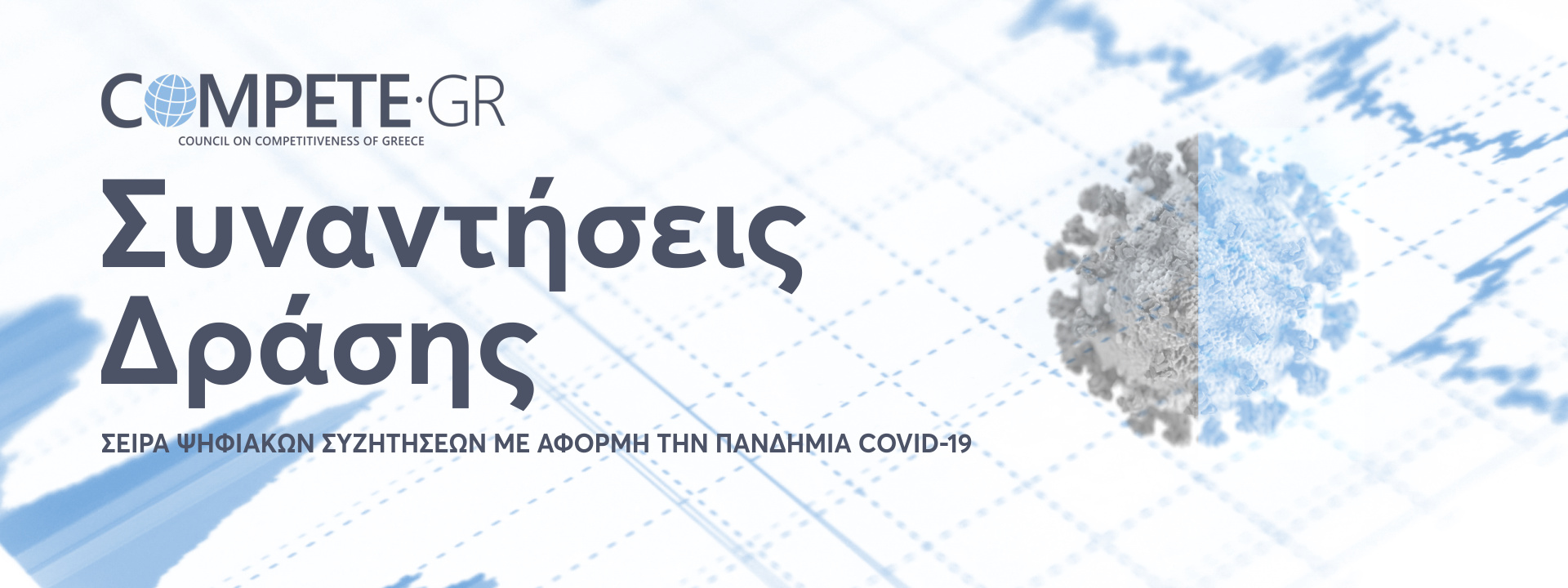KNOWLEDGE SESSIONS – ACTIONABLE DISCUSSIONS
In response to the COVID-19 pandemic, the Council on Competitiveness for Greece (CompeteGR), has been organizing biweekly online knowledge sessions featuring representatives of its member companies, various associations and academia as well as other friends of the Council to discuss specific issues and put forth opinions and proposals.
Each session begins with a brief statement from Council President Mr. Simos Anastasopoulos, followed by a presentation, by Council Executive Director Dr. Venetia Koussia, on Greece’s competitive position according to international reports, and a brief introduction on each of the session’s topics by a knowledgeable and distinguished speaker.
Wednesday, April 29, 2020
Liquidity and the Banking System – George Handjinicolaou, Chairman, Piraeus Bank; Vice President of CompeteGR
Banking Information Services – Solomon Berahas, Managing Director, Tiresias
Red Loans (NPL) – Theodoros Kalantonis, Executive Chairman, Eurobank FPS
As the crisis is significant, recovery is likely to be U-shaped rather than V-shaped, and there is so much uncertainty in our forecasts that nothing can be said with any conclusiveness, except that speed plays a critical role and that measures should not be implemented horizontally because not everyone will be affected equally.
Expert and scientific knowledge must of course be utilized in the economy as it has been in healthcare.
It has been pointed out that the COVID-19 pandemic is an excellent opportunity for Greece to move forward with structural reforms and to change its production model—something it would be hesitant or unable to undertake under different circumstances. On the one hand, the positive examples of exporting companies, which have demonstrated higher resilience to the pandemic and the lockdown, require additional flexibility and structural reforms, and on the other hand, small businesses, which are more adversely affected by the crisis, require targeted aid in order to become more productive and avoid extinction—without, of course, coming to rely on this completely, as we would then be subsidizing unemployment rather than employment.
The pandemic and the lockdown have created a gap in the market that we are called upon to bridge with extroversion and creativity, thinking outside the boxes in which we have operated to date. How can we create an economy of added value that will bridge this gap swiftly and solidly? Both the government and the private sector have a duty to put forward realizable proposals.
This will change the mindset toward the new direction, focusing on reducing inequalities and providing more opportunities.


 Programs & Events
Programs & Events Engage with the Council
Engage with the Council Our Blog
Our Blog Contact us
Contact us
